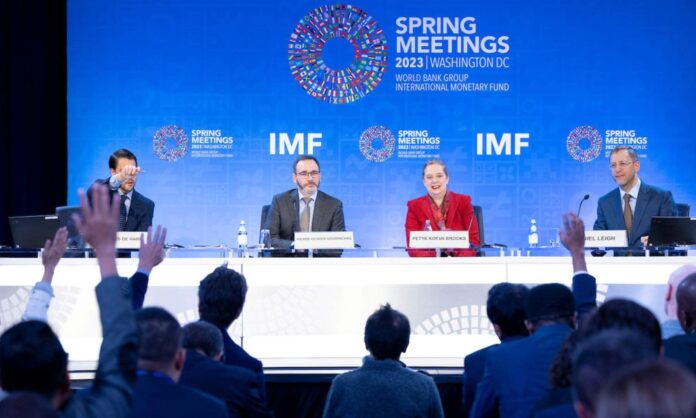Although the Philippines has to deal with the economic scarring dealt on countries by the pandemic just like everyone else, the $404 billion southeast Asian economy exercised its good neighbor policy and contributed a modest amount to a fund set up by the International Monetary Fund (IMF) to help low-income country (LIC) members.
This was bared by IMF managing director Kristalina Georgieva as she wraps up the spring meetings of the IMF/World Bank Group in Marrakech, Morocco where she also said the Fund successfully raised $17 billion in the latest round of funding for the Poverty Reduction and Growth Trust (PRGT) program.
The 14-year old PRGT seeks contributions from member countries for distribution either as loan resource or subsidy resource for low income countries at zero-interest.
“I am delighted to announce that we have successfully met the fundraising targets for the PRGT agreed to in July 2021. Reaching these targets is critical to allow the IMF to continue to support low-income countries with zero-interest rate financing to meet their evolving needs,” the IMF chief said.
According to her, the Philippines was one of 14 emerging market member countries to have contributed to the subsidy resource component of the PRGT that raised $3 billion, equivalent to 12.6 billion in special drawing rights (SDR), the currency of the IMF. Twenty-seven other advanced economies contributed to the subsidy kitty.
Some of the 14 emerging market countries that contributed to the subsidy component include Brunei Darussalam, China, India, Qatar, Saudi Arabia and Thailand.
On the other hand, the advance economies that contributed $17 billion to the loan component of the PRGT total 17. With contributions also from emerging economies, their combined resources equal to 12.6 billion SDRs.
According to the IMF chief, demand for the PRGT has risen five times since the onset of the pandemic and has benefited 56 countries. Thirty countries or 45 percent of all PRGT-eligible countries have an ongoing PRGT-supported program, the largest since the inception of the program in 2009.
“Low-income countries have been hit hard by multiple global shocks in recent years. Not only are they bearing the brunt of economic scarring from the pandemic, these countries are also grappling with food price shocks, high debt, and the increasing occurrence of climate disasters.
Throughout these challenges, the IMF has been a strong partner for low-income countries, the IMF chief said.
“Looking ahead, demand for PRGT support is projected to reach nearly $40 billion during 2020-24, about five times the historical average,” she said.
The Philippines graduated from prolonged, decades-long use of IMF financing in 2000 when Manila became a net contributor to the IMF under then President Joseph Estrada who benefited from structural and policy reforms adopted by a string of political leaders starting with President Corazon Aquino.







